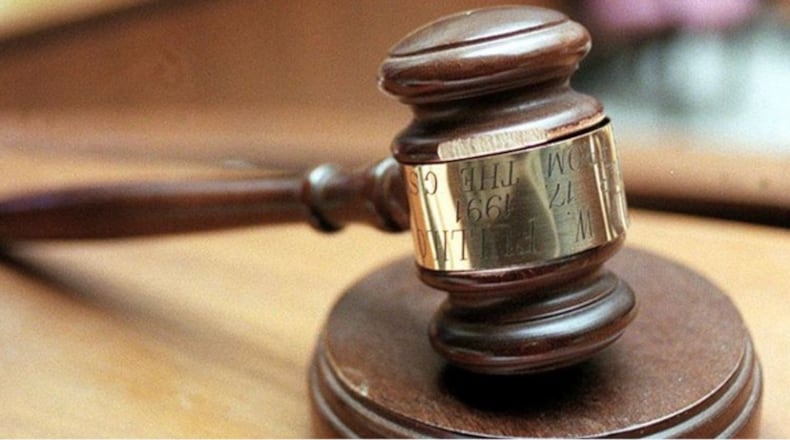The concept is familiar: Kids sell treats to raise money for charity, while in turn learning valuable lessons about hard work and salesmanship.
That was the structure of one metro Atlanta charity, Georgia Peach Youth Club of America, which billed itself as a “work and recreation program” for at-risk teenagers combatting bullying, drugs and violence.
However, the money that was raised was funneled straight to a notorious street gang, according to Georgia Attorney General Chris Carr.
On Tuesday, Carr’s office announced the indictments of 14 people on 15 charges, including human trafficking, racketeering, criminal street gang activity, charity fraud and money laundering. The indictment, which names the CEO, CFO and secretary of Georgia Peach Youth Club among the defendants, labels the charity organization as a “labor-intensive human trafficking ring.”
Credit: Georgia Peach Youth Club of American, Inc.
Credit: Georgia Peach Youth Club of American, Inc.
The organization was linked to the Nine Trey Bloods street gang, a subset of the famous United Blood Nation gang out of Los Angeles, Carr said. Prosecutors for the state attorney general’s office presented evidence for the case in Cherokee County, resulting in the indictments Monday.
“We will charge gang members who try to exploit our children in order to further their criminal enterprise,” Carr said in a statement.
According to the indictment, adults involved in the group recruited children from “economically disadvantaged areas of Atlanta” using a variety of methods. The organization advertised prizes and rewards for kids who sold candy or other food items. The kids were told that selling a certain amount would result in a range of prizes and rewards.
Georgia Peach Youth Club supervisors would pick up children in vans and drive them to different areas to sell treats and raise funds, the indictment said. The children would often go door-to-door or stand outside of retail stores to solicit sales. Minor children were dropped off to collect donations for hours without any supervision, according to Carr.
The tactic sometimes rubbed people the wrong way, as addressed in a Nextdoor post by the Dunwoody Police Department in November 2020. After noting that several residents and businesses had been visited by kids on behalf of GPYC, Dunwoody police said the organization was a registered non-profit and did not require a permit to solicit funds.
Once money had been collected by the children, they were often not rewarded with the prizes promised to them, the indictment said. Instead, the defendants would keep the money for themselves or the Nine Trey Bloods gang, Carr said. Because the children were “deprived of the promised compensation,” the defendants are accused of trafficking of persons for labor servitude, the indictment said.
GPYC was started in 2015 as a legitimately registered non-profit, according to the Georgia Secretary of State’s records. The state’s case against the organization focuses on its activities in Cherokee over the past four years.
IRS records show that the organization had been awarded tax-exempt status and that it reported less than $50,000 in gross receipts in 2016, 2018 and 2019. Because the charity said it raised less than $50,000 per year, it was not required to report more detailed financial information.
The organization functioned publicly with a website, Facebook page and Instagram account. GPYC last posted on Facebook on May 5, showing photos of a group outing to Andretti Karting and Games in Marietta. Another post from the same day showed a similar event at Altitude trampoline park.
According to the organization’s articles of incorporation, GPYC’s office address corresponds to a house in Stone Mountain. The owner of the home is not included in the indictment.
The 14 defendants listed in the indictment have each been charged with racketeering, four counts of human trafficking and one count of charity fraud.
In addition to those counts, Jamainne Charles Hall, Miguel J. Baez and Robert Peter Blackwood are each charged with four counts of violating the Street Gang Terrorism and Prevention Act. The three men are also listed, respectively, as the CEO, CFO and secretary of GPYC.
Five people are also charged with five counts of money laundering each: Jule W. Huston, who is listed as the organization’s registered agent; Ronald John Crowe; and Hall, Baez and Blackwood.
The remaining defendants, all facing identical charges, are Romaine Matthew Roberts, Kavon Keith Thompson, Kiya A. Jefferson, Dominique Provost, Kiva Viola Clarke, Isaiah Reuben Cordero, Nathan James Jackson, Raheem Icarus Popley Carvey and Aaron Yusef Abdullah.
The case was investigated by the GBI based on a referral from the charities division of the Secretary of State’s Office.
About the Author
Keep Reading
The Latest
Featured



